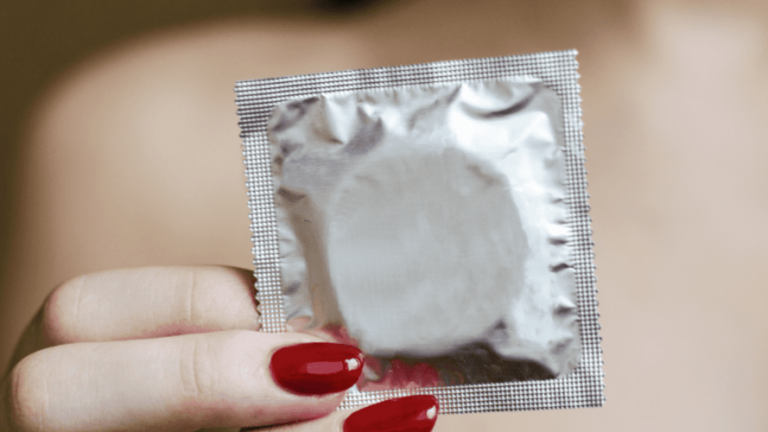If you’re working in the sex industry, there are risk factors that need to be considered in order to keep you safe.
Practicing safe sex with clients will protect you from STIs and the risk of any unwanted pregnancy. It is therefore important to have regular sexual health check-ups.
- Know the risks
- Always use protection
- Research contraceptive methods
- Reduce your risk of unsafe sex
- Take care of your health
To support sex workers, Vivastreet has provided some sexual health advice to help maintain your health and stay protected within the industry.
Know the risks
The best way to prevent and lower your risk of getting an STI is to use barrier protection every time you participate in a sexual encounter with a client.
Sexually Transmitted Infections (STIs) are diseases that are mainly transmitted through unprotected sexual intercourse or genital contact.
STIs are passed from one person to another and occur when a bacteria, virus or parasite grows inside or on your external body.
Contrary to popular belief, STIs can be passed on through various sexual activities, not just penetrative sex. Sexual activities that can put you at risk of contracting an STI include:
- Vaginal penetrative sex
- Anal penetrative sex
- Oral sex
- Fingering
- (Unclean) Sex toys
- Urine and faeces (for those with specific sexual fetishes)

For more information on the risks of sexual activities, click here.
Common STIs
According to FPA and the NHS, some of the most common STDs in the UK are:
-
- Chlamydia – One of the most common STDs, Chlamydia is a bacterial infection. Many people do not notice any symptoms. However, symptoms can include an unusual discharge that looks like egg white, painful urination, pain and swelling in testicles, and for women, bleeding after sex/between periods and stomach pains
- Genital herpes – An infection that manifests itself through small blisters located on the genitals, anus, bottom or thighs. Those infected can experience painful urination, unusual vaginal discharge, or tingling, burning or itching around your genitals
- Genital warts – This is when painless growths or lumps develop around the vagina, penis and anus. Symptoms can include swellings, itching, discomfort or bleeding from the genital area or anus, and can take weeks to months before any symptoms appear
- Gonorrhoea – Typical symptoms include thick green or yellow discharge from the vagina or penis, painful urination, and bleeding in between periods. However, many do not experience any symptoms
- Syphilis – Symptoms can include small sores or ulcers on sexual organs and the anus, white patches in the mouth, joint pains, high temperature and swollen glands
It’s important to know that many people with an STI experience no symptoms at all. It is advised that you pay regular visits to your GP or sexual health clinic to ensure you are healthy.
Some STIs can be cured or treated, while others may become permanent – even if there is an improvement in symptoms. Others, when not diagnosed and treated in time, can progress to serious complications.
For more information on STDs and symptoms, click here.
Always use protection
Barrier contraceptive methods like condoms should be used at all times to protect you from getting an STI. If used correctly, condoms can dramatically reduce the risk of most STIs and are regarded as the best protection method during sex.
To be effective, condoms must be used from the start to the end of sexual activity, as STIs can be transmitted through pre-ejaculation. Although 95%-98% effective in protecting against STIs, condoms do not protect against STIs like herpes or genital warts (especially if the area is not covered), which can be transmitted through skin-to-skin contact.
Condoms can also break during sexual activity. To reduce the chances of this incident occurring, use water-based lubricant, make sure the condom is in date and has been stored correctly, and never reuse a condom, as it’s designed for one use only.

For more information on condoms and how to use them, click here.
Opt for safer sexual activities
There are safer yet enjoyable sexual activities you and your client can practice that have a lower risk of STI transmission, such as:
- Kissing
- Cuddling
- Massage
- Masturbation or mutual masturbation
- Intercrural sex
- Ejaculating on unbroken skin
- Protected sex with a condom
As mentioned earlier, no sexual activity is 100% risk free, therefore always take every precaution when engaging with your partner.
Research contraceptive methods
As well as condoms, there are a variety of contractive methods to help prevent an unwanted pregnancy. These include:
Hormonal IUD
The Hormonal IUD (SIU) is a T-shaped device that contains and releases the hormone progesterone. It must be prescribed by a doctor and placed in the womb by a healthcare professional. Its performance is active through the regular release of a lower dose of the hormone and lasts for 3-5 years.
The effectiveness of this method is more than 99% when inserted correctly, but it can have some side effects such as reduced menstrual flow, acne, headaches, tenderness in the breasts and changes in mood.
Copper IUD
This IUD releases copper, causing an inflammation in the uterus and altering the performance of the sperm.
When used correctly, its effectiveness is more than 99% when inserted correctly and lasts between 5 and 10 years, and has the same indications and care as the Hormonal IUD.
Contraceptive pill
The pill is an oral contraceptive that is taken daily. There are several brands and models available on the market. To find the best one for you, discuss this with your GP.
With the use of the pill, the effectiveness is above 99% when used correctly. Among its possible side effects are irregular menstruation, nausea, and increased sensitivity of the breasts.

Contraceptive injection
With a dose of the progestin hormone, the injection is applied to the buttock muscle, releasing the hormone slowly into the body. It should only be administered by a healthcare professional.
There are monthly and quarterly injections, and their protection rate, in perfect use, exceeds 99%.
Contraceptive patch
This adhesive, similar to a plaster, is glued to the skin on the abdomen, arms or back once a week.
The patch is more than 99% effective when used correctly. Possible side effects include irregular menstruation, nausea, increased breast sensitivity, and a rash on the area the patch is placed.
Vaginal ring
This is a small, flexible plastic ring that is inserted inside the vagina. It slowly releases a hormone that prevents pregnancy.
Its operation is similar to that of the pill, but it needs to be inserted only once a month and must be prescribed by a health professional. Its effectiveness, in perfect use, is more than 99%.
Note: These contraceptive methods are only valid for protection against pregnancy. To prevent STDs, in addition to pregnancy, the methods indicated are the male condom and the female condom.
Reduce your risk of unsafe sex
When escorting, generally there are various things you must consider in order to be safe while working and limit any risks to your health.
When it comes to sexual activity, there are certain behaviours and attitudes that can put you at higher risk of unsafe sex. Be sure to avoid the following:
- Intoxication
- Using recreational drugs
- Thinking that a one-time occasion will be fine
- Believing that a client doesn’t have an STI if they say so or because they haven’t had any symptoms
- Believing you can look at someone and tell if they have an STI
Feeling pressured to have unprotected sex by a client, can put you at risk.

Take care of your health
As a sex worker, safe sexual practices will keep you healthy.
Whatever your choice of contraception, always use it in combination with condoms (a form of the ‘dual-method’ use).
The above will protect you and your clients from the possible transmission of sexually transmitted infections.
Discuss in advance with your clients about your sex safety protocol and do not undergo any sexual activities that you are not entirely comfortable with.
Although you may look to win more clients and increase your income, your health and well-being is a priority.
If you have unsafe sex or are experiencing any of the STD symptoms mentioned above, see your GP or visit a sexual health clinic as soon as possible to be tested for STIs.
Otherwise, always practice safe sex and consult your doctor regularly for periodic examinations as part of your health routine as a sex worker.
For more advice and support or information on working safely, here are some articles you may find useful:





